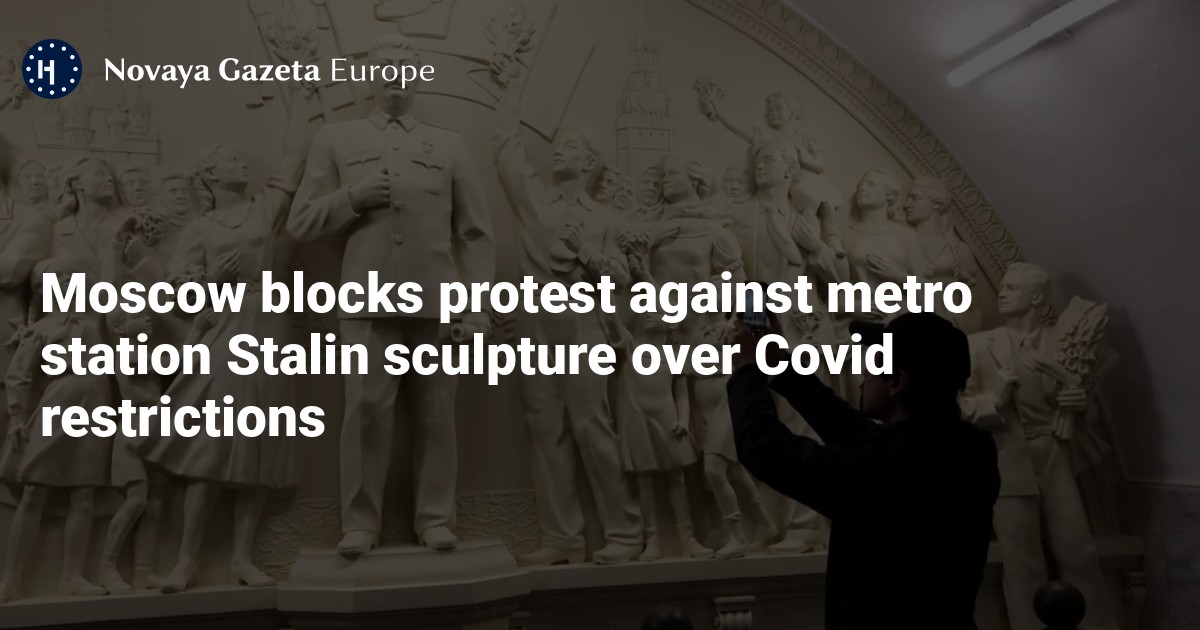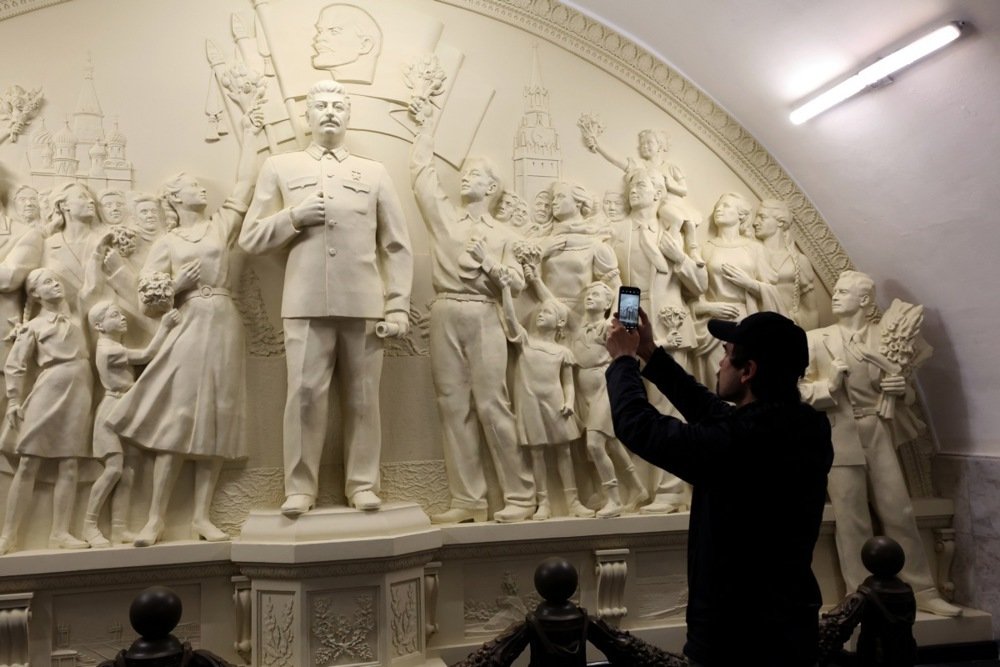




A man takes a photo of the bas-relief sculpture featuring Soviet leader Joseph Stalin at the Taganskaya metro station in Moscow on 15 May 2025. Photo: EPA-EFE/MAXIM SHIPENKOV
Authorities in Moscow have refused permission for a protest to be held against a freshly recreated monument to Soviet dictator Joseph Stalin at the city’s Taganskaya metro station, citing five-year-old restrictions on public gatherings introduced to stop the spread of Covid-19, the party behind the planned protest said on Tuesday.
Kirill Goncharov, deputy head of the Moscow branch of liberal party Yabloko, shared a photo of a letter from the Moscow Central Administrative District Prefecture, which explained that his request to hold a protest of up to 20 people against the statue on 3 July had been rejected “in accordance with the current epidemiological situation … to prevent the spread of coronavirus infection” in the capital.
Yabloko said the authorities were using the restrictions, which were introduced in June 2020, to “suppress dissent”, adding that it would appeal both the protest ban and the broader use of Covid-19 restrictions in court and continue its campaign to have the monument removed.
The refusal reflected the authorities’ “fear of Muscovites expressing their will”, Goncharov said.
“By installing the bas-relief sculpture without considering the views of residents, the government shuts down any discussion and imposes a moratorium on any display of public dissatisfaction with the rehabilitation of Stalinism in central Moscow,” the politician continued.
The sculpture — a replica of the original named The People’s Gratitude to the Commander-in-Chief that commemorated the Soviet Union’s defeat of fascism in World War II — was unveiled in May to mark 90 years since the opening of the Moscow metro.
Shortly after its installation, activists staged a protest by placing quotes from Vladimir Putin and former president Dmitry Medvedev criticising Stalin’s cult of personality and repressions alongside the monument.
Authorities in Russia continue to use pandemic-era restrictions on public gatherings to suppress unwanted protests, with anti-war rallies opposing the Kremlin’s invasion of Ukraine, as well as demonstrations in support of slain opposition figures Alexey Navalny and Boris Nemtsov, all blocked under the same pretext in recent years.
